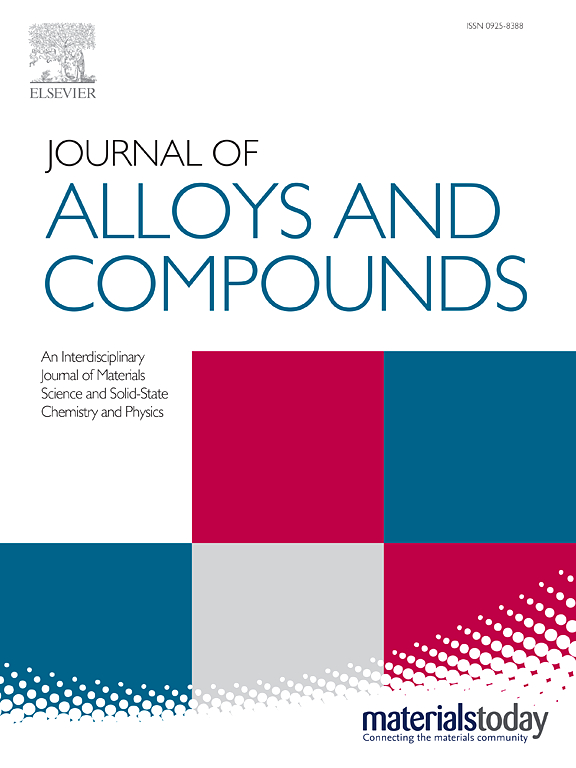应变率、温度和微观结构对 (CoCrNi)94Al3Ti3 中熵合金机械性能的影响:实验和构成模型
IF 5.8
2区 材料科学
Q2 CHEMISTRY, PHYSICAL
引用次数: 0
摘要
在温度为 123 至 573 K、应变率为 10-3 至 3700 s-1 的单轴压缩条件下,研究了原铸、固溶处理和时效 (CoCrNi)94Al3Ti3 中熵合金 (MEA) 的力学性能和微观结构演变。与单相溶液处理的 MEA 相比,球形纳米颗粒使原铸和老化 (CoCrNi)94Al3Ti3 的屈服应力分别提高了约 55% (达 586 兆帕)和 73%(达 655 兆帕)。在环境温度下,原铸合金和时效合金的动态应变速率灵敏度明显更高。在固定应变速率下,所有三种合金的屈服强度和流动应力都随着温度的降低而增加。原铸合金和时效合金的屈服强度明显更高,这主要是由于相干有序 L12 沉淀的沉淀强化作用。位错滑移在塑性变形中占主导地位,并导致沿加载方向出现微弱但明显的⟨110⟩纹理,所有合金中均未观察到变形孪晶。此外,建立的 Khan-Liu 构成模型可以很好地描述三种合金在宽应变率和温度范围内的塑性流动。本文章由计算机程序翻译,如有差异,请以英文原文为准。
Effects of strain rate, temperature and microstructure on mechanical properties of (CoCrNi)94Al3Ti3 medium-entropy alloy: Experiments and constitutive modeling
Mechanical properties and microstructure evolution of as-cast, solution-treated and aged (CoCrNi)94Al3Ti3 medium-entropy alloys (MEAs) are investigated under uniaxial compression at strain rates from 10−3 to 3700 s−1 within temperatures from 123 to 573 K. Compared to the single-phase solution-treated MEA, spherical nanosized particles result in an increase in the yield stress approximately by 55% (to 586 MPa) and 73% (to 655 MPa) for the as-cast and aged (CoCrNi)94Al3Ti3, respectively. At ambient temperature, the as-cast and aged alloys demonstrate significantly higher dynamic strain rate sensitivity. At a fixed strain rate, the yield strengths and flow stresses increase with decreasing temperature for all three alloys. The as-cast and aged alloys exhibit significantly higher yield strength primarily due to precipitation strengthening of the coherent ordered L12 precipitates. Dislocation slip dominates the plastic deformation and leads to the weak but apparent ⟨110⟩ texture along the loading direction, and no deformation twins are observed in all alloys. Besides, Khan-Liu constitutive models are developed and can well describe the plastic flow of three alloys over a wide range of strain rates and temperatures.
求助全文
通过发布文献求助,成功后即可免费获取论文全文。
去求助
来源期刊

Journal of Alloys and Compounds
工程技术-材料科学:综合
CiteScore
11.10
自引率
14.50%
发文量
5146
审稿时长
67 days
期刊介绍:
The Journal of Alloys and Compounds is intended to serve as an international medium for the publication of work on solid materials comprising compounds as well as alloys. Its great strength lies in the diversity of discipline which it encompasses, drawing together results from materials science, solid-state chemistry and physics.
 求助内容:
求助内容: 应助结果提醒方式:
应助结果提醒方式:


